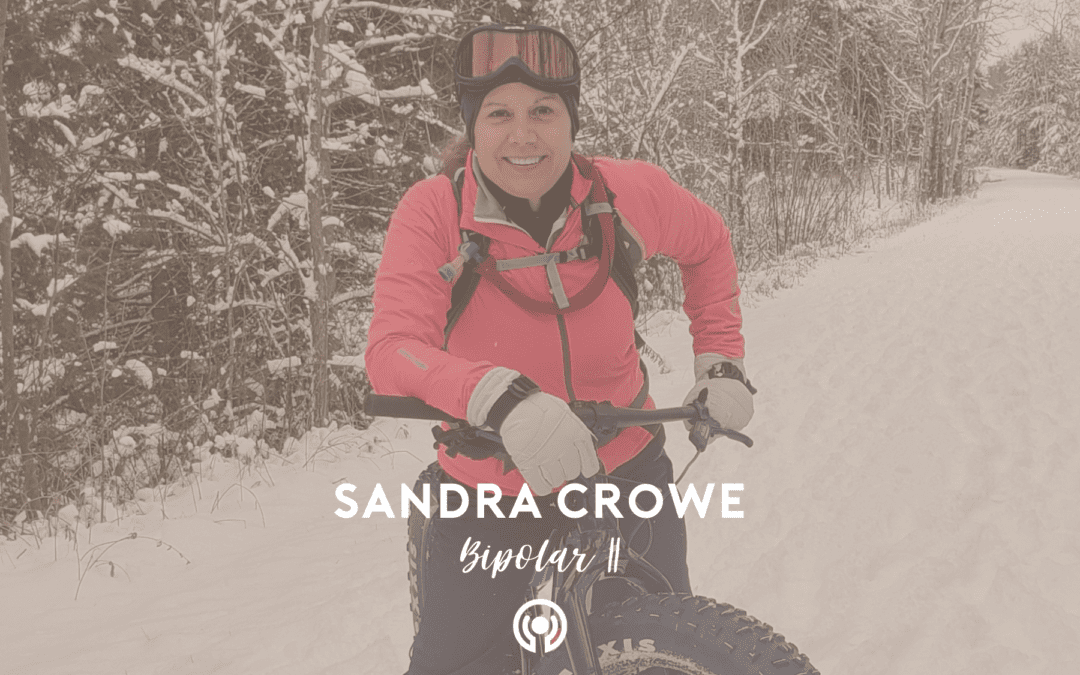Faces of Hope and Recovery
Author: Sandra Crowe
Every decade living with bipolar gets better for me.
When I was diagnosed with Bipolar 2 at the age of 22, I had already attempted suicide twice. But I wasn’t in a place to accept my diagnosis and the work and stigma that goes along with it. Being inconsistent with medications, sleep and stress meant several more hospitalizations, overdoses and ECT. A turning point for me was moving cities at 26. My new psychiatrist changed my medications and suggested a 4 week full day outpatient program. At the end of the program it was suggested to find part time employment, studies or volunteer.
I remembered how fitness had been something I enjoyed in the past, and had always made me feel good. I took a personal trainer certification through my local YMCA. I loved it and knew I could actually hold a job if this is what I did! By doing more certifications, including fitness and yoga instructor, I built a career out of it, and 20 years later, I am proudly still at!
It’s an ideal job for me with bipolar. Each class is one hour, and no matter how you are feeling, you can get through the hour. And the rush of endorphins I get from my classes is pivotal to my mood.
Through this time, I’ve raised two children I am proud of, went through divorce and remarriage and many “small businesses” I would start in hypomania. I even went off medication for a few years using exercise, proper sleep and supplements. I began to question if I had bipolar.
However, it is a lifelong illness, with periods of remission. In my early 40s, stress, and jet lag triggered hypomania, followed by a debilitating depression. A friend encouraged me to see my doctor and get back on meds. My new husband had never seen this side of me. It was, and still is, difficult for him to accept it as an illness, and not a choice, but he still support in many ways. I am very good at hiding both my pain, and my highs. My anxiety makes me want everyone to like me, which means there is always a smile on my face, until I am alone and can let my true emotions out.
I’m lucky to have an amazing medical support team. My psychiatrist put me in a 12 week Mood and Anxiety program, once a week, through the hospital, followed by an 8 week bipolar program. I learned so many coping skills, and an acceptance that I need to take life a little bit easier, and prioritize sleep, stress, and exercise. I also now see that if I had continued with medication the entire time, my life may have been different. I have never worked full time or finished any formal education. A depression always got in the way. My parents have been supportive of me through highs and lows, but as a parent myself now, I can’t imagine the pain they must have felt. And while I had thought I could prove something if I was off medication, I can proudly say that I can prove a lot more by staying on it.


